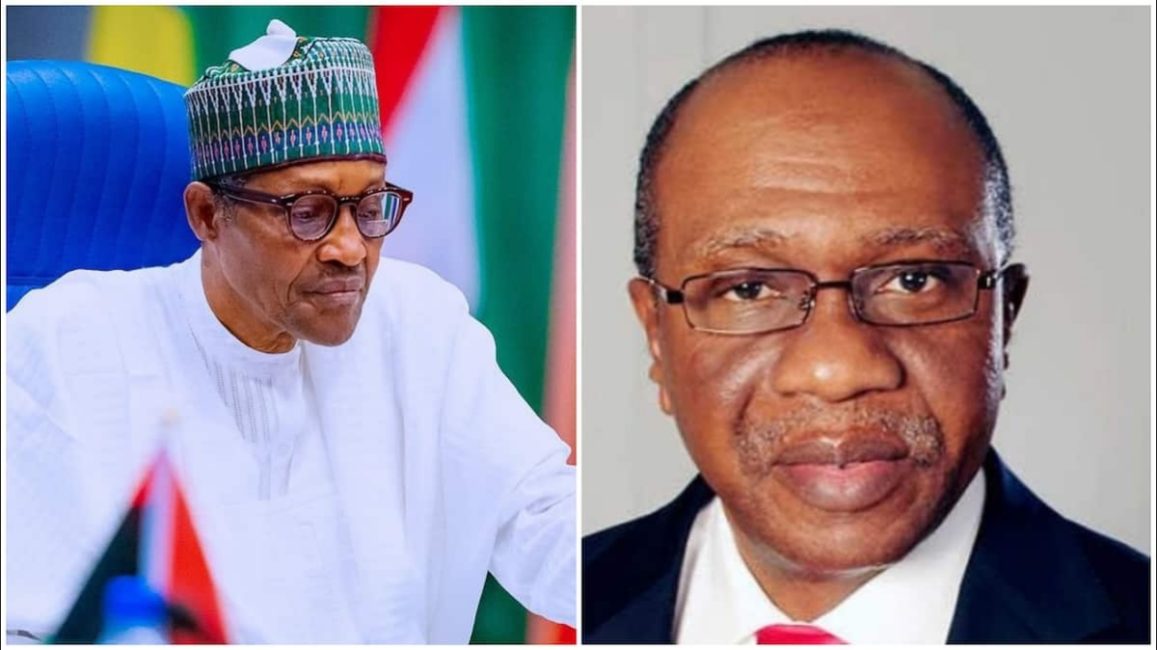Since Nigeria’s return to democracy in 1999, successive governments have foregrounded the promise of equaling the naira to the dollar before the end of their tenure. Although many financial experts know that these politicians are barely speaking with a forked tongue.

The present administration of President Muhammadu Buhari is no exception to such miraging promises. In a bid to oust former President Goodluck Jonathan in 2015, the All Progressives Congress promised to reduce drastically the rate difference between the naira and dollar in all market segments. In 2015, the dollar was exchanged between N170 to N190 at the Investors and Exporters (I&E) window as well as the parallel and P2P market segments. It is a different story today- the naira is exchanged at over N700 to a dollar at the parallel market and an alarming gap when compared to the I&E window where it is traded for less than N460. All these are indications of cluelessness by the apex bank boss, Godwin Emefiele.
There are many reasons for this conundrum the country finds itself in and none of such reasons could be divorced from Emefiele’s policies. In September 2021 when the naira traded between N520 and N570 per dollar, the black market price collation website ‘Aboki FX’ was called out for being responsible for the currency plummeting. In Emefiele’s words, “We cannot allow you (Aboki FX) to continue to kill our economy.” The website was kicked out and the country’s economy is still being killed. Who then is killing the naira?
Supporters of the CBN governor have tried to absolve him of much blame. They claim oil subsidy payment has negatively affected the value of the naira. It is justifiable to say that the foreign currency being used for subsidy should be directed to the country’s economy which would make more dollars available. It will however be insensitive to remove subsidies with the current poverty rate. The scarcity of dollars will continue to shrink the value of the naira and only calculated and deliberate policies could change the tides of things. Emefiele’s tenure as CBN boss has been marred with cackhanded policy-making, designed not to strengthen the price mechanism, but to indulge the whims and caprices of an overweening regulatory infrastructure.
It is more worrisome that Emefiele’s decision to halt the sales of dollars to Bureaux De Change operators in August 2021 did not yield any positive results. Just like any other market, for the FX market to function properly there must be a large number of sellers and buyers, none of whom may arbitrarily fix prices, and all of whom may exit and come in at will. Policies to promote and importantly regulate these sellers in the FX market could have prevented the challenges the country battle as regards its exchange rate.
The bulk of the recent ‘currency crisis’ the country faces rests on Emefiele’s shoulders. He appears to inject his sentiments of discontent into delivering his duties. He is famed for taking decisions based on his discontent against other variables. For instance, the CBN governor did not provide any factual, persuasive or coherent wrongdoing against Aboki FX. A reminiscence of such emotionally charged action came to the fore last week. Emefiele reportedly criminalised purchasing the dollar and although he was referring to the thieving politicians, news reports did not give that cognisance. Thus panic trading was recorded at the Nigerian Foreign exchange and the unavailability of foreign currencies.
Emefiele appears to have exhausted his ideas on how to rejig the country’s currency, there is no better time than now for him to yield to the loud calls for his sack. Asides from this, the discourse of fuel subsidy removal should be brought to the fore; there is also an urgent need for the federal government to make the environment palatable for foreign investors who would pump enough dollars into the country’s economy. Let’s hope the country’s ravaging security situation is overturned to give room for this.


Comments are closed.